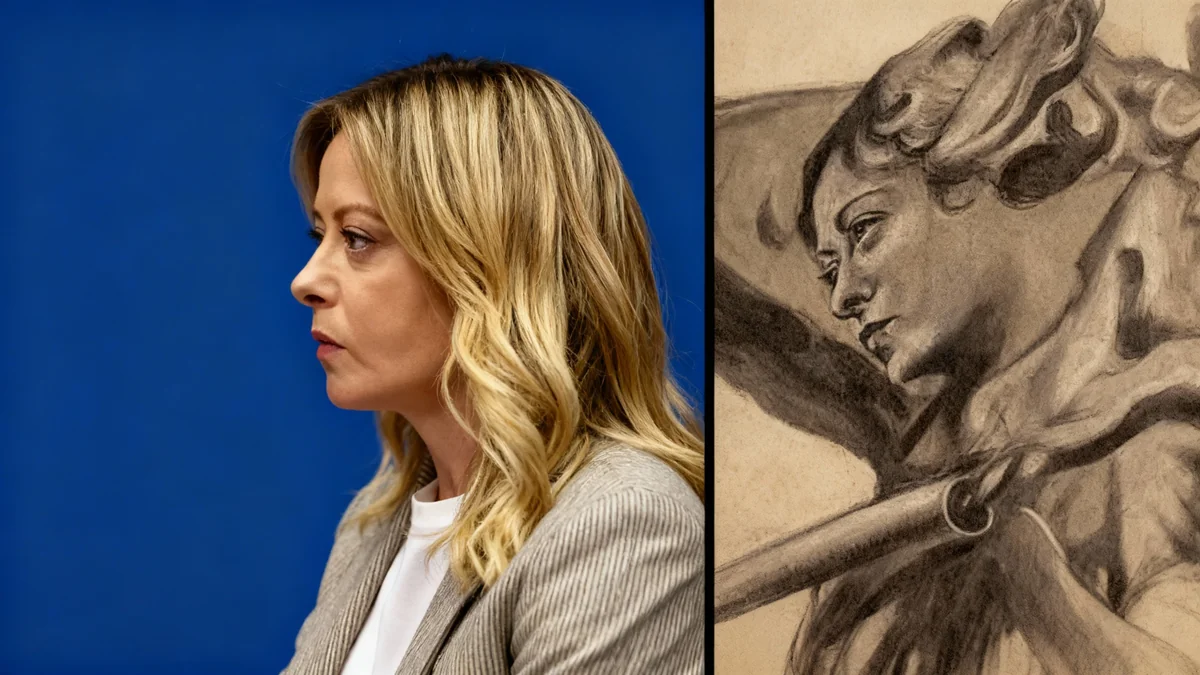Recording artist Vic Mensa recently used social media to critique what he views as racist cultural appropriation within American music. On September 25, Mensa shared a video on Instagram, paired with a direct caption, expressing his strong opinions on the subject. His remarks focused on specific musical trends and historical patterns of exploitation.
Mensa's post quickly gained attention for its candid nature and direct challenge to artists he terms "MAGA rappers." He accused these artists of creating songs that, in his view, glorify racial violence, particularly through country or trap music genres. This critique extends beyond music to a broader discussion of cultural borrowing and its historical context.
Key Takeaways
- Vic Mensa criticized artists for cultural appropriation in music.
- He specifically called out "MAGA rappers" for glorifying racial violence in country and trap songs.
- Mensa linked modern appropriation to historical exploitation, including food, folklore, and country music.
- He connected the fetishization of Black features to the historical exploitation of figures like Sarah Baartman.
- The artist expressed frustration over ongoing racial injustices, referencing a recent incident in Mississippi.
Mensa's Critique of "Lynching Music" and Genre Appropriation
In his Instagram video, Vic Mensa is seen walking near a pool, holding a grapefruit. The visual is accompanied by the caption: "Songs about lynching just don’t slap." This statement set the tone for his broader commentary. He questioned why artists would use genres associated with Black culture to promote messages of violence against Black people.
Mensa directly addressed what he called "MAGA rappers." He stated, "Like, fam, can’t you even get your own genre of music to talk about killing us?" This comment highlights his belief that these artists are not only appropriating musical styles but also twisting their message in a harmful way. He described the trend as "pathetic" and compared the performers to "Jay and Silent Bob" caricatures, suggesting a lack of originality and genuine connection to the culture they imitate.
Cultural Appropriation Defined
Cultural appropriation is the adoption or use of elements of a minority culture by members of the dominant culture. It often occurs without understanding, respect, or acknowledgment of the original cultural context or creators. Critics argue it can perpetuate stereotypes and diminish the significance of the original culture.
He argued that these artists demonstrate a desire to emulate Black culture. Mensa wrote, "They want to be us so f***ing bad." This points to a deeper issue of identity and perceived envy, which he believes fuels the appropriation.
Historical Context of Cultural Borrowing
Vic Mensa expanded his critique beyond contemporary music, connecting it to a long history of cultural borrowing in America. He suggested that a sense of guilt drives this behavior, stemming from the historical enslavement and oppression of Black people.
"The guilt is deafening, because from a deep, intrinsic place of knowing, they understand that they owe their entire existence to those that they’ve enslaved and oppressed," Mensa wrote.
He cited various aspects of American culture that he believes originated from Black communities. These include food, folklore, and even specific musical genres. He referenced Beyoncé's recent foray into country music as an example of its true origins.
The Origins of Country Music
While often associated with white rural Americans, country music has deep roots in African American folk traditions. Banjo music, blues, and spirituals significantly influenced its development. Early country recordings often featured Black and white musicians, and the genre evolved from a blend of diverse cultural expressions.
Mensa specifically mentioned elements like barbecue, fried chicken, Jack Daniels whiskey, and even children's stories such as Br'er Rabbit. He argued that these are all examples of cultural contributions from Black communities that have been widely adopted, often without proper acknowledgment or respect for their origins.
Racism, Obsession, and the Fetishization of Black Features
The rapper also drew a parallel between historical racism and the modern fetishization of Black physical features. He connected current cosmetic trends to a troubling history of exploitation. Mensa referenced Sarah Baartman, a Khoikhoi woman from the 19th century who was exhibited in Europe due to her body shape.
He described Baartman's exploitation as "the original BBL," referring to the modern cosmetic procedure known as a Brazilian Butt Lift. This comparison highlights his view that the desire to emulate Black features has a historical precedent rooted in objectification and exploitation.
- 19th Century: Sarah Baartman was displayed as an attraction in Europe.
- 21st Century: Cosmetic trends often mimic features historically associated with Black women.
Mensa believes that obsession plays a significant role in hatred. He stated, "a huge part of the DNA of hatred is obsession, and a primary part of the DNA of racism is jealousy." This suggests that racial animosity can stem from a desire to possess or appropriate aspects of another culture, combined with a deep-seated envy.
Frustration Over Injustice and Denial
Mensa anchored his critique in recent events, expressing profound frustration with ongoing racial injustices. He specifically mentioned what he described as a lynching in Mississippi, dismissing claims that it was a suicide. This direct reference to a tragic incident underscores the emotional weight of his message.
His concluding remarks reflected a sense of exhaustion and a need to step away from online discussions. "I’m running out of patience for this s***. I need to turn off the Internet," he wrote. This statement captures the raw frustration many feel when confronted with what they perceive as systemic racism and denial.
Mensa's social media post combines sharp cultural criticism with a strong emotional response. It addresses the dangerous intersections of racism, cultural appropriation, and the denial of historical and ongoing injustices. His message aims to provoke thought and highlight what he sees as a persistent problem in American society and its cultural expressions.




